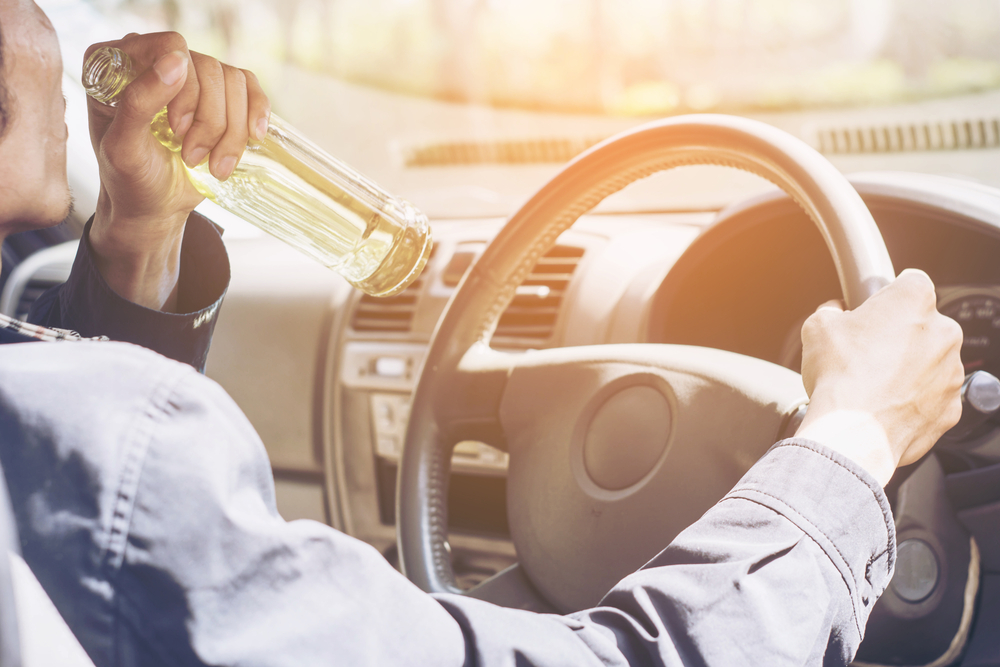Share This Article
The Case of DPP (NSW) v Kirby [2017] NSWSC
Mr. Kirby was charged with driving under the influence of alcohol under section 112(1)(a) of the Road Transport Act 2013 (NSW).
The Katoomba Local Court on 19 April 2017 found him not guilty on the basis that the police were unable to prove that Mr. Kirby’s manner of driving was affected by the influence of alcohol.
This decision was appealed to the NSW Supreme Court by the DPP, who argued, that the police are not required to prove that Mr. Kirby’s driving was affected by alcohol in order to be guilty of this charge.
In other words, the DPP argued that, to be guilty of the offence of DUI under s112(1)(a), all that needs to be proved is that Mr. Kirby was under the influence of alcohol or any other drug at the time of driving. It doesn’t matter whether or not the driving was affected by alcohol.
The Facts
Evidence by 3 police officers and a hotel supervisor established that, on 6 August 2016, Mr. Kirby was drinking at a Hotel in Blackheath between midday until about 7:30pm. from about 7:30pm he was refused further alcohol due to his level of intoxication observed by the hotel supervisor.
Two police officers were also at the hotel for an unrelated matter, and each officer observed Mr. Kirby to be “well affected by alcohol”.
The hotel supervisor saw Mr. Kirby to be drinking lots of water since being refused further alcohol.
She observed him to leave the hotel via the back of the hotel at about 9:30pm.
The back of the hotel exit, where he left from, was where his car was parked in the car park.
The hotel supervisor observed Mr. Kirby to still be effected by alcohol at that stage.
Mr. Kirby told police when arrested that he drove home after leaving the hotel.
On his way driving home, Mr. Kirby was involved in an accident where his car had left the road, and gone down an embankment. Police later found the car with a cattle dog still secured to it.
At the time police found the car, the driver was not found. After enquiries, police discovered it was Mr. Kirby’s car.
The accident occurred at about 11pm.
The police drove to Mr. Kirby’s home which was about 7km from the accident scene. When police arrived at his home, they found and arrested Mr. Kirby about 70meters away from his front gate. He was arrested at about 11:50pm.
At the time of his arrest, the officers observed Mr. Kirby to have physical signs of being effected by alcohol at that stage. They observed Mr. Kirby to have bloodshot eyes, yet no longer slurring his speech.
Mr. Kirby was then taken to the Katoomba police station where he wasn’t required to undergo a breath analysis because it had been over 2 hours since the time he was driving.
The Final Result
In the result, the Supreme Court on appeal found that the Local Court Magistrate’s decision was wrongly based.
The Supreme Court in Mr. Kirby’s case held that, to be guilty of driving under the influence, there does not need to be any evidence that the consumption of alcohol affected the driving.
In giving this decision, the court referred to a decision of Molloy v McDonald (1939) 56 WN (NSW) 159 at 160, which involved a charge of driving a car on a public road whilst under the influence of intoxicating liquor. Here the court said:
“If it is once found by the Magistrate that a person is under the influence of intoxicating liquor and that person is driving a motor vehicle in a public place the offence is committed. The question of whether he is capable of properly driving and controlling a motor vehicle may be a question to be considered in connection with the question whether he is at time the alleged offence under the influence of intoxicating liquor, but it is in no sense a necessary part of the offence that the defendant should be not only under the influence of intoxicating liquor but also incapable of properly driving and controlling the motor vehicle.”
“I have heard it said that there are persons who are quite as capable of driving and controlling a motor vehicle when they are drunk as when they are sober. Whether that is the fact or not the legislature has paid no regard to it. It has not made incapacity for driving the test. The only test is whether the person driving is, in fact, under the influence of intoxicating liquor.”
Is Expert Medical Evidence Required ?
No.
Expert medical evidence to establish the extent of intoxication isn’t required in court to prove that you were influenced by alcohol.
The case of DPP v Ridley [2015] NSWSC 1478 establishes this and basically says that, any person who made observations of your signs of intoxication, including friends, family, police officers or bystanders, can give evidence of their opinion as to the extent of your intoxication.
This is relevant to whether you were under the influence of alcohol at the time of driving, regardless of whether it effected your driving ability.
In Summary
The offence of driving under the influence of alcohol under s112, as distinct to the offences of low range drink driving, mid range drink driving or high range drink driving, only requires proof that you were under the influence of alcohol or drugs to any degree, irrespective of the ability to drive.
Penalties for DUI Charges
If this is considered your ‘first offence’, a person guilty of DUI will face a maximum penalty of up to 18 months jail and/or a fine of up to $3,300.
If this is considered your ‘second or subsequent’ offence, the maximum penalty for DUI is a fine of up to $5,500 and/or 2 years jail.
This will be considered a ‘second or subsequent offence’ if in the previous 5-years from the day of conviction for this DUI offence, you’ve been convicted of a ‘major offence’ which includes a drink driving offence.
If it is not considered a ‘second or subsequent offence’, it will be considered a ‘first offence’.
If the court convicts you for driving under the influence of alcohol (not drugs), then you will also be subject to the ‘mandatory interlock program‘ where you will be required to install an interlock device in your vehicle for the ‘minimum interlock period’ which will require you to blow into the device each time you wish to drive it. The device will not allow the vehicle to start unless it returns a zero-alcohol reading.
For a ‘first offence’ of driving under the influence of alcohol (not drugs) you will be disqualified from driving for a minimum of 6-months or a maximum of 9 months before being required to participate in the minimum interlock period for 2-years thereafter.
For a ‘first offence’ of driving under the influence of drugs (not alcohol), you will be subject to the automatic disqualification period of 3-years unless the court exercises discretion and reduces it to a minimum of 12-months disqualification period. This is due to the fact that the mandatory interlock program does not apply where it involves drugs.
For a ‘second or subsequent offence’ of driving under the influence of alcohol (not drugs) you will be disqualified from driving for a minimum of 9 months or maximum of 12 months before being required to participate in the interlock period for a minimum of 4 years thereafter.
for a ‘second or subsequent offence’ of driving under the influence of drugs (not alcohol), you will not be required to participate in the interlock program, but you will then face an automatic licence disqualification period of 5 years, unless the court exercises discretion to reduce it to a minimum of 2 years.
Even where the mandatory interlock program applies to a person who is convicted of driving under the influence of alcohol (not drugs), a court can exempt the offender from participating in the interlock program– in which case, he/she will face the same automatic disqualification periods outlined earlier for driving under the influence of drugs.
While those penalties are maximums, the courts rarely impose maximum penalties, and usually save the maximums for the most serious offenders.
A person guilty of driving under the influence of alcohol or drugs will completely avoid a licence disqualification, criminal conviction, loss of demerit points and fine if the court is convinced to give you either a non-conviction Conditional Release Order or a section 10 dismissal.
If you have any questions relating to DUI law, contact our team who are available 24/7 for guidance. Our Sydney drink driving lawyers appear in all court and provide a free first consult.
Book a Lawyer Online
Make a booking to arrange a free consult today.
Call For Free Consultation
Call Now to Speak To a Criminal Defence Lawyer
Over 40 Years Combined Experience
Proven SuccessAustralia-Wide
Experienced LawyerGuarantee
 (02) 8606 2218
(02) 8606 2218
 (02) 8606 2218
(02) 8606 2218















